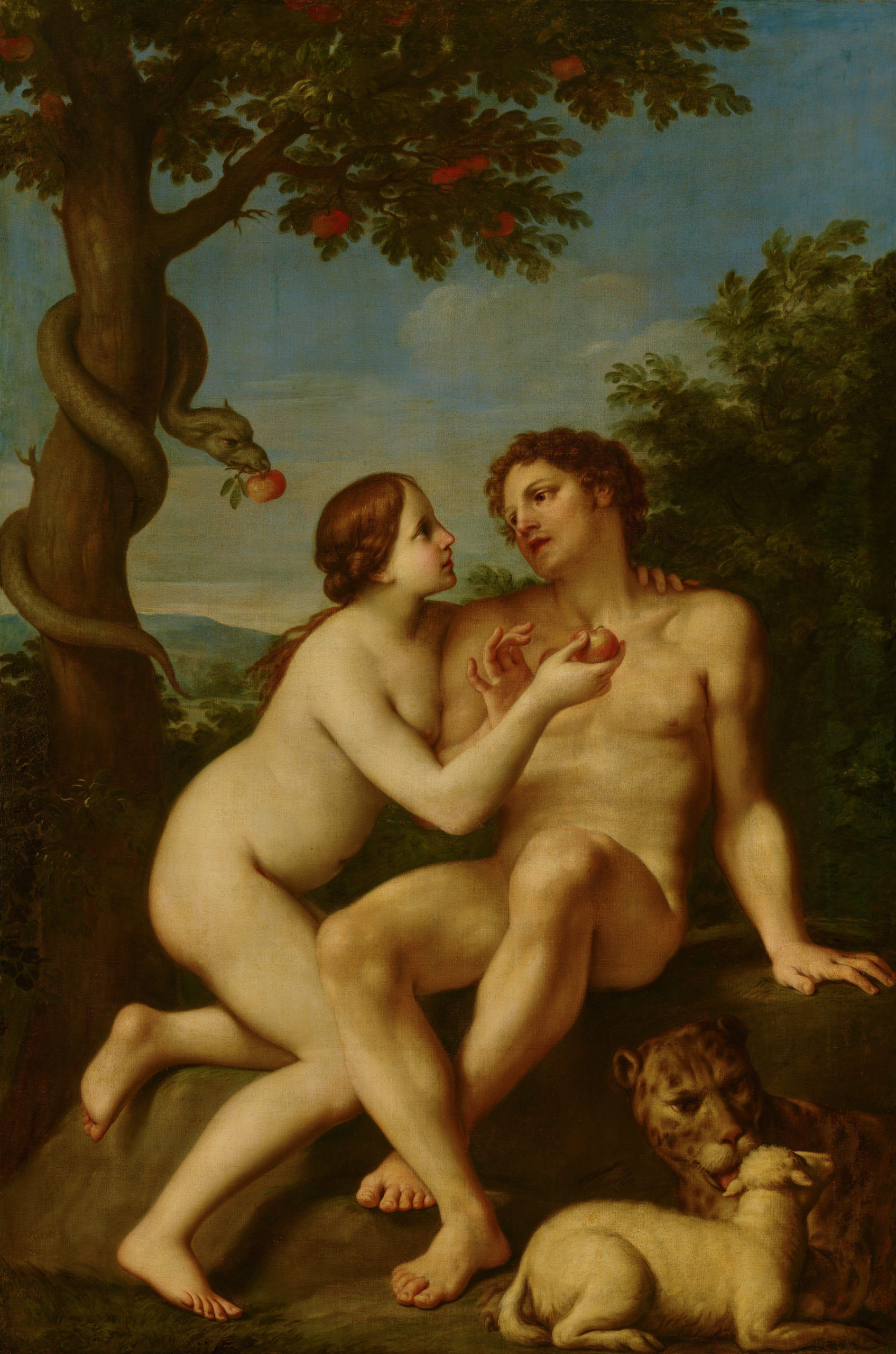
“Adam and Eve” by Marcantonio Franceschini (1648-1729), oil on canvas, painted about 1680, housed at the Mauritshuis art museum, The Hague, Netherlands.
Spiritual Life
CONNIE ROSSINI: ‘Deliver us from evil’
March 19, 2021
We have come to the final line in our study of the Our Father, following the Catechism. Today we examine what it means for God to “deliver us from evil,” and why Jesus chose to end the prayer with these words.
 All along, the Catechism has connected the Our Father with Jesus’ own prayer the night before he died. So we read, “The last petition to our Father is also included in Jesus’ prayer: ‘I am not asking you to take them out of the world, but I ask you to protect them from the evil one’” (CCC, no. 2850).
All along, the Catechism has connected the Our Father with Jesus’ own prayer the night before he died. So we read, “The last petition to our Father is also included in Jesus’ prayer: ‘I am not asking you to take them out of the world, but I ask you to protect them from the evil one’” (CCC, no. 2850).
Jesus knows well that Satan is real and that he desires our destruction. Jesus’ own ministry began with temptation by the devil. Facing evil is a part of human life. As long as we are in the world, we cannot avoid evil. Jesus told his disciples, “In the world you have tribulation; but be of good cheer, I have overcome the world” (Jn 16:33).
How did Jesus overcome the world? By his death and resurrection. He called “the time for the power of darkness” (Lk 22:53) the very time at which he accomplished our deliverance from evil. “Victory over the ‘prince of this world’ was won once for all at the Hour when Jesus freely gave himself up to death to give us his life. This is the judgment of this world, and the prince of this world is ‘cast out.’’’ (CCC, no. 2853).
If we look closely at those words, we discover a connection with the beginning of the Our Father: “Thy kingdom come, thy will be done.” Before Jesus redeemed the world from sin, it was in a sense Satan’s kingdom. When the serpent led Adam and Eve to obey him rather than God, Satan became “the prince of this world.” He ruled over us through our misuse of freewill.
The most visible sign of his rule was physical death. Jesus as the New Adam chose to do God’s will instead of what his human flesh desired. In his embrace of death out of love for the Father, he broke death’s power. “(By Satan’s) definitive defeat all creation will be ‘freed from the corruption of sin and death’” (no. 2852).
Someday, God will completely destroy death forever. Even now death for the Christian is a passage into eternal life with God, thanks to the work of the cross. At the same time, sin is still at work in the world.
The devil, who could not reign over Jesus, strives to reign over us. He continues to “make war” on us (no. 2853). He tempts us to sin. He entices us to choose self over God’s will. He offers us the false “bread” of temporal pleasure. He torments us with the thought of our own sinfulness and with doubts regarding God’s forgiveness. In fact, he tries to replace our Father, God, with himself, “the father of lies” (no. 2852).
Thanks to Jesus, our Father is in Heaven. One day, his kingdom will fully come, his will will be done “on earth as it is in Heaven.” “In this final petition, the Church brings before the Father all the distress of the world. Along with deliverance from the evils that overwhelm humanity, she implores the precious gift of peace and the grace of perseverance in expectation of Christ’s return” (no. 2854).
The Our Father anticipates our future, ultimate deliverance. “Therefore the Spirit and the Church pray: ‘Come, Lord Jesus,’ since his coming will deliver us from the Evil One” (no. 2853).
Connie Rossini is a member of St. Peter Parish in Omaha. She is the author of “The Q&A Guide to Mental Prayer,” now available at amazon.com, and five other books on Catholic spirituality.